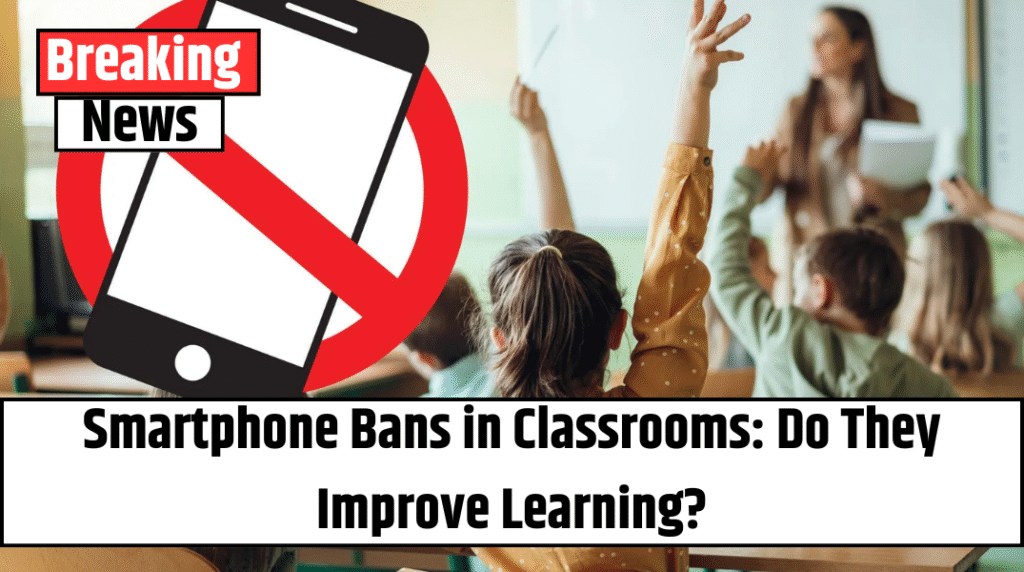As concerns grow over young people’s mental health and classroom distraction, more schools across the UK are choosing to ban smartphones. Many educators say these policies are improving students’ focus and social interaction — but not everyone is convinced of their effectiveness.
Rebecca Mahony, headteacher at Birkenhead High School Academy in Merseyside, introduced one of the UK’s first school phone bans back in 2017. Since then, she says the initiative has become a deeply embedded part of the school’s culture.
“Initially, there were concerns,” Mahony told the BBC. “Some parents worried their children might become more anxious without their phones. But we’ve seen the opposite — the phones themselves were often contributing to their anxiety.”
Her school’s policy requires students to lock their phones away during the day, and the results have been encouraging: students are now engaging in face-to-face conversations, playing games like UNO, and reconnecting with peers. Yet Mahony is quick to point out that her larger concern lies beyond classroom distractions — she sees mobile phones as a growing threat to children’s mental health and interpersonal development.
“I see students who struggle to make eye contact or hold conversations,” she said. “They’re not learning essential communication cues like body language. It’s deeply worrying.”
Are Bans Enough? What the Research Says
Despite anecdotal successes from individual schools, new research suggests that smartphone bans alone may not be the silver bullet some believe them to be. A study led by academics at the University of Birmingham found no clear link between school phone bans and improved academic performance or mental wellbeing.
Also Read – Government Allocates £760m for SEND Reforms from School Budget Rise
The researchers found no significant differences in sleep patterns, behaviour in class, physical activity, or overall screen time between students at schools with bans and those without.
However, the study did uncover a broader trend: students who spent more time on smartphones and social media platforms tended to show poorer outcomes across all measured categories.
Lead researcher Dr. Victoria Goodyear emphasized that while school bans might be helpful in certain contexts, they are not a comprehensive solution.
“Limiting phone use during the school day is just one piece of the puzzle,” Goodyear said. “We need to tackle the issue more holistically and help students reduce screen time overall.”
Parents, Educators, and Campaigners Weigh In
The movement for stricter smartphone rules in schools has gained traction with many parents and teachers alike. A national campaign called Smartphone Free Childhood has garnered support from over 14,000 schools and 145,000 children. The group recommends that children avoid smartphones entirely until at least age 14, and delay access to social media until age 16.
Dr. Victoria Kazi, a GP and campaign spokesperson, says these recommendations are rooted in concerns over children’s cognitive and emotional readiness to navigate complex online environments.
“Teenagers are much better equipped at 16 to deal with the content and pressures that come with social media,” Kazi explained. “Delaying access gives their brains and social skills time to mature.”
At The Mosslands School in Wallasey, headteacher Adrian Whiteley introduced a phone-locking system last year. He says it has made a dramatic difference.
“Students used to find ways to sneak off during lessons just to check their phones,” Whiteley recalled. “Now, they’re spending breaks talking to each other instead.”
He added that a universal policy has relieved pressure on parents too: “When schools set firm boundaries, it’s easier for parents to say no to smartphone requests at home.”
Changing Social Norms Around Phone Use
The cultural shift toward delayed smartphone use is giving families more tools to push back against peer pressure. Some parents are now empowered to say, “You’re not the only one without a phone — I know others in your year group who don’t have one either.”
Campaigners also argue that tighter regulation is needed at a national level. A parliamentary debate set for July will discuss a proposed bill aimed at limiting smartphone use in schools and curbing addictive algorithms targeting young people.
Also Read – Top UK Regions with the Most Independent Schools Revealed
The bill is being supported by several high-profile voices, including Esther Ghey — the mother of 16-year-old Brianna Ghey, whose tragic murder was linked in part to a perpetrator’s exposure to violent content online. Ghey and others are calling for the government to restrict social media access for children under 16.
Writer and screenwriter Jack Thorne, whose recent drama Adolescence explores the darker side of teenage social media use, is also advocating for bold action. He suggests the UK should consider legislation similar to Australia’s move to ban under-16s from social media entirely.
UK Technology Secretary Peter Kyle has said he is watching the developments in Australia “very closely,” indicating the issue is gaining momentum at the highest levels of government.
A Complex Issue With No Quick Fix
While banning smartphones during school hours may offer immediate relief from certain distractions, experts warn that long-term solutions require broader efforts — including education on responsible tech use, better regulation of online platforms, and support for families navigating a rapidly changing digital world.
As schools, parents, and policymakers continue to grapple with the impact of mobile technology on young minds, one thing is clear: the conversation around kids and smartphones is far from over.



